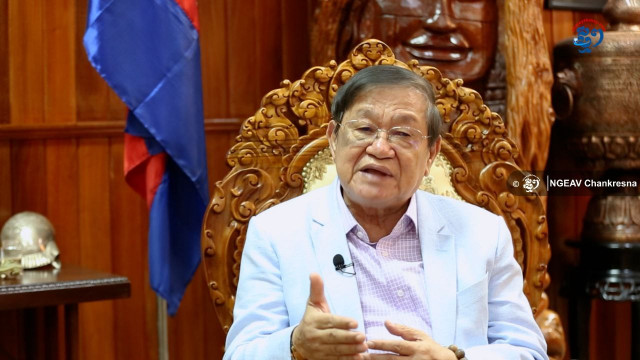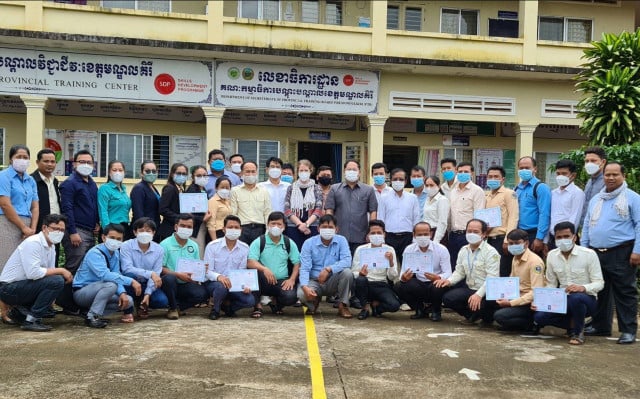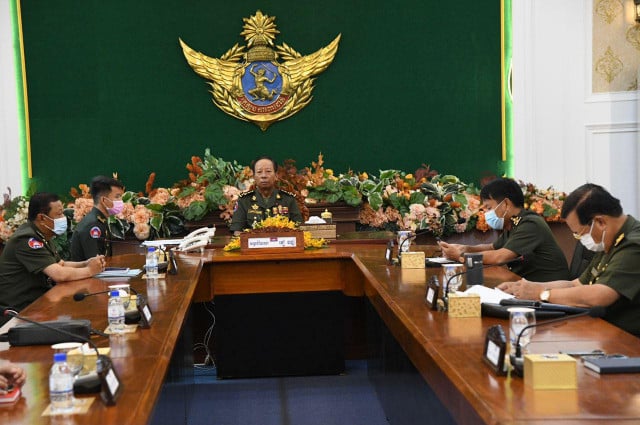Unprofessional Journalism Practices Affect the Profession’s Reputation: Minister

- By Song Sotheavy
- and Sam Sopich
- October 25, 2022 6:40 PM
PHNOM PENH – Information Minister Khieu Kanharith has urged the public not to give credit to unprofessional journalists who don’t follow the profession's basic rules and whose work affects the reputation of the whole journalism sector.
While the number of media institutions and journalists being recognized by the Ministry of Information increased from 1,596 in 2018 to 2,154 in 2022, the minister pointed out that some “unethical groups of journalists” keep reporting in the country, referring to so-called reporters who run Facebook pages in which they mostly broadcast live streams.
“Journalism is a free field, in which everyone can operate even if they did not graduate with a bachelor's or master's degree. Therefore, some people take this opportunity to pretend to be journalists and report inappropriately, which affects the reputation of other journalists,” he said.
While the Cambodian constitution and the 1995 law on the press guarantee the freedom of publication to journalists, the minister recalled that it is the public who gives each media its true value. Thus it is important that readers and viewers are aware of the quality to which they’re exposed.
He deplored that, since smartphones and internet connexions became ubiquitous, some untrained people started to go on the field to extensively report on trivial events.
While journalists’ code of conduct consists of reporting the facts and rejecting personal opinions, being cautious with posting photos or videos that show victims of crimes or accidents, or rejecting all sorts of bribes, such bad practices are still too common in Cambodia’s media field.
Rather than reporting the facts, some journalists interpret a lot, show inappropriate photos and videos of car accidents, and sometimes confront the victims without any sensitivity, Kanharith mentioned.
He added that it is still common for some journalists to accept bribes to report on something or, on the contrary, not to do it.
“But people now start criticizing such bad practices,” he noted.
‘Not a justice unit’
The Information Minister said that if the readers or viewers feel their sensibility was hurt, they should send a letter to the media to make their case. If necessary, they can also file a complaint to the court.
In such a case, the Ministry could revoke the media license until the court has reached a verdict, Kanharith said, before recalling his Ministry was not part of the judicial system.
“Though, if it is a minor mistake, the Ministry of Information will educate them,” he said. When a media receives several complaints from the public, it is not unusual for the Ministry to sign a contract with it, stipulating it should follow the profession’s code of conduct.
Nop Vy, executive director of CamboJA said that compared to 1993, the year the Cambodian constitution was adopted, the media environment had improved a lot in terms of security for journalists and restrictions to the freedom of the press.
Nevertheless, in 2017 and 2018, several major newspapers and radio stations were shut down after a massive crackdown, only a few months ahead of the 2018 general election. Since then, Cambodia has fallen from the 132nd to 142nd place in the Reporter Sans Frontières’ press freedom index.
“We should better promote journalism so it reaches better quality standards, as journalism plays a vital role in democracy,” he said.
Nop Vy added that he agrees with the fact the Ministry of Information is “not a justice unit”, especially as the freedom of the press is guaranteed by the constitution, and journalists should not work under the control of any institution.
He suggested that the management and supervision of journalists should come from the profession itself and not from any governmental institution.
“Unprofessional journalists will lose their popularity at some point if they don’t respect the people who read, listen and watch what they produce,” he said.















